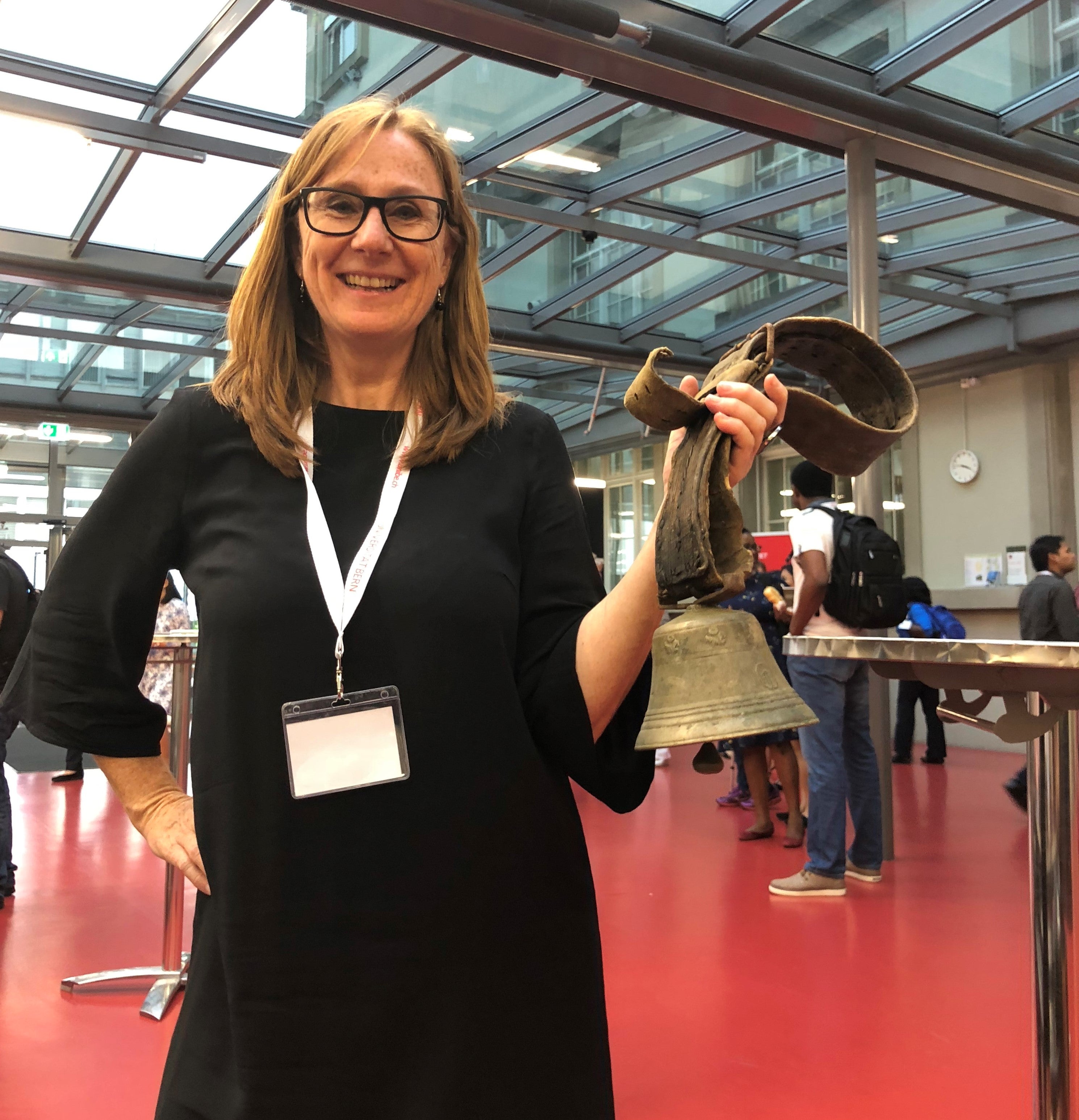Enriching Evaluation near the Alps: IPDET 2.0 Delivers on its Promise
Launched this summer, the updated and revised IPDET evaluation training program was a resounding success.
Launched this summer, the updated and revised IPDET evaluation training program was a resounding success.
By: Brenda BarbourWhere can you go if you want to learn the foundations of development evaluation, improve your ability to commission evaluations, use evidence for decision making, or deepen your skills with new evaluation methods? As an evaluator, how and where do you go to expand your network of evaluation colleagues to call on?

This summer, the answer was Bern, Switzerland.
IEG, along with a newly formed consortium consisting of the University of Bern’s Center for Continuing Education and the Center for Evaluation (CEval), delivered a new, improved International Program for Development Evaluation Training (IPDET).
The two-week program comprised a one-week core course, taught by Ray Rist and Linda Morra Imas, followed by a second week of advanced workshops, taught by renowned faculty from around the world, including Michael Quinn Patton, Jos Vaessen, Wolfgang Meyer and Reinhard Stockmann. The core course provided a comprehensive overview of development evaluation: from evaluation context and theories of change, to evaluation questions and approaches, design, indicators and measurement, complexity, and managing evaluations. In small groups, the participants worked on case studies to transfer what they have learned into real world solutions. The second week’s workshops took up and deepened the exploration of evaluation methods, approaches, management, and implementation. The workshops covered topics of interest to evaluators and commissioners and users of evaluations.
The new IPDET builds on the solid foundation of the internationally recognized program IEG has supported for the past 18 years. IPDET was conceived of and developed in IEG, and then delivered annually at Carleton University from 2001 through 2016. In 2017 IEG conducted a comprehensive search to find a new delivery partner that would be able to make IPDET even better.
The UniBern-CEval consortium is positioned to do just that. The first feat was organizing the delivery of the updated curriculum in a new location in less than a year. Done. The July delivery in Bern supported 150 participants from 67 countries, including 25 participants from South Asia, 25 from Sub-Saharan Africa, and 12 from Latin America. One participant described IPDET as an “extremely enriching experience.” These participants now join the active IPDET alumni network, which includes thousands of people around the world who, as Linda Morra Imas described, “speak the same language of evaluation".
Watch highlights from IPDET 2018
Highlights from this year’s program include:
This program could not have been delivered without the scholarship support of the Swiss Agency for Development and Cooperation (SDC), the German Federal Ministry for Economic Cooperation and Development (BMZ), and the Ministry of Foreign Affairs of the Netherlands.

The program was not all work, work, work. There were also walking tours of Bern’s old city, yoga classes, happy hours with Swiss wine, and an excursion to the Alps.
With the successful inaugural delivery of IPDET 2.0, it is time to turn our focus to the next step: building on this strong foundation to improve and expand the program to make convening global communities of evaluators and delivering IPDET in the global South a priority.
Dr. Stefanie Krapp, Head of IPDET says, “We will further develop the program to serve the changing evaluation needs.”
If you are interested in IPDET—enrolling in the 2019 program, applying to lead a workshop, or discussing partnerships for delivery in the global South—please connect with us.
The IPDET, commissioned by the World Bank, provides managers and practitioners with the tools to evaluate development strategies, programs and projects at the local, national, regional and global levels. The continuing education offer is aimed at development professionals who carry out, commission, manage or use evaluations. Participants come from ministries or agencies in developing countries, development banks, the non-profit and foundations sector, the United Nations system, as well as bilateral development agencies, universities, think tanks, and private sector development consulting firms.


Dr Verena Friedrich heads the ZUW Evaluation Group at the University of Bern, Switzerland, which is one of the new co-hosts of IPDET. She is director of studies of the ZUW training programs (Certificate, Diploma and Master of Advanced Studies in Evaluation), and she regularly conducts evaluations and evaluation consultations, mainly in the context of higher education. Besides teaching evaluation, her main interest lies in the topic of professionalization in evaluation.
Comments
does this group work in…
does this group work in nepal also ? Nepal
Add new comment